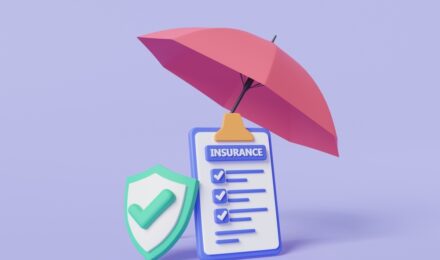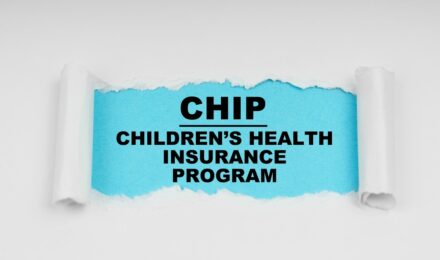Contents
Tax season often feels like a mountain too steep to climb. For low-income households already managing tight budgets, the challenges can seem even more overwhelming. Thankfully, tax relief programs exist to provide support and lighten the load. These initiatives—offering credits, deductions, and expert assistance—can bring much-needed financial stability.
What Are Tax Relief Programs?
Tax relief programs are tailored to ease the financial pressure taxes place on individuals. These initiatives are thoughtfully designed to assist those facing economic difficulties. By offering benefits such as tax credits, deductions, and free filing support, they act as a financial safety net. For struggling families, these programs can restore a sense of hope and security. Isn’t it reassuring to know such help is available?
Recovery Rebate Credit: What You Need to Know
The Recovery Rebate Credit serves as a crucial opportunity for those who missed out on stimulus payments during the COVID-19 pandemic. Picture recovering funds you believed were out of reach—that’s precisely the promise of this credit. If you didn’t receive your full stimulus allocation in 2020 or 2021, this program offers a chance to reclaim what’s rightfully yours.
Eligibility Criteria
Qualifying for the Recovery Rebate Credit is straightforward. You are eligible if:
- You, your spouse, or a dependent were U.S. citizens or resident aliens.
- A valid Social Security Number (SSN) or Adoption Taxpayer Identification Number (ATIN) was in place.
- You didn’t receive the full amount of stimulus money owed to you.
How to Claim Missing Stimulus Money
Filing a tax return is the essential step to reclaiming this credit, even if you don’t typically file taxes. Here’s what to do:
- File for the 2020 tax year to recover any missing payments from that year.
- File for 2021 if you missed payments from that year.
Preparation is vital. Make sure your Social Security Number and tax documents are organized before filing to avoid unnecessary delays.
Accessing Free Tax Assistance
Filing taxes doesn’t have to feel insurmountable. Free resources are available to make the process easier:
- Volunteer Income Tax Assistance (VITA): This program is ideal for individuals earning less than $64,000, those with disabilities, or anyone who struggles with English as a second language.
- Tax Counseling for the Elderly (TCE): Tailored for taxpayers aged 60 and older, this program is especially beneficial for those with retirement-related questions.
Why face these challenges alone when expert help is just a step away?
Additional Steps to Verify Missing Payments
Wondering if you’re still owed money? Follow these steps:
- Look for IRS notices such as “Notice 1444,” “Notice 1444-B,” or “Notice 1444-C.” These documents detail payments sent to you.
- Visit irs.gov to log into your account and check payment records under “Tax Records.” It’s quick and easy to review!
Important Considerations
Mistakes in claiming the Recovery Rebate Credit can cause delays, but they’re avoidable. If you’re unsure about your eligibility or how to proceed, take advantage of the free assistance programs mentioned earlier. Accuracy is your best defense against setbacks.
Understanding and utilizing these tax relief programs can make a significant difference in your financial well-being. Don’t wait to explore your options—take charge of your financial future today. Peace of mind is closer than you think.
Resources
- Internal Revenue Service (IRS): A comprehensive resource for information on tax credits and stimulus payments.
- Volunteer Income Tax Assistance (VITA): Expert help for eligible taxpayers.
- Tax Counseling for the Elderly (TCE): Free tax support tailored to seniors.
Contents
Tax season often feels like a mountain too steep to climb. For low-income households already managing tight budgets, the challenges can seem even more overwhelming. Thankfully, tax relief programs exist to provide support and lighten the load. These initiatives—offering credits, deductions, and expert assistance—can bring much-needed financial stability.
What Are Tax Relief Programs?
Tax relief programs are tailored to ease the financial pressure taxes place on individuals. These initiatives are thoughtfully designed to assist those facing economic difficulties. By offering benefits such as tax credits, deductions, and free filing support, they act as a financial safety net. For struggling families, these programs can restore a sense of hope and security. Isn’t it reassuring to know such help is available?
Recovery Rebate Credit: What You Need to Know
The Recovery Rebate Credit serves as a crucial opportunity for those who missed out on stimulus payments during the COVID-19 pandemic. Picture recovering funds you believed were out of reach—that’s precisely the promise of this credit. If you didn’t receive your full stimulus allocation in 2020 or 2021, this program offers a chance to reclaim what’s rightfully yours.
Eligibility Criteria
Qualifying for the Recovery Rebate Credit is straightforward. You are eligible if:
- You, your spouse, or a dependent were U.S. citizens or resident aliens.
- A valid Social Security Number (SSN) or Adoption Taxpayer Identification Number (ATIN) was in place.
- You didn’t receive the full amount of stimulus money owed to you.
How to Claim Missing Stimulus Money
Filing a tax return is the essential step to reclaiming this credit, even if you don’t typically file taxes. Here’s what to do:
- File for the 2020 tax year to recover any missing payments from that year.
- File for 2021 if you missed payments from that year.
Preparation is vital. Make sure your Social Security Number and tax documents are organized before filing to avoid unnecessary delays.
Accessing Free Tax Assistance
Filing taxes doesn’t have to feel insurmountable. Free resources are available to make the process easier:
- Volunteer Income Tax Assistance (VITA): This program is ideal for individuals earning less than $64,000, those with disabilities, or anyone who struggles with English as a second language.
- Tax Counseling for the Elderly (TCE): Tailored for taxpayers aged 60 and older, this program is especially beneficial for those with retirement-related questions.
Why face these challenges alone when expert help is just a step away?
Additional Steps to Verify Missing Payments
Wondering if you’re still owed money? Follow these steps:
- Look for IRS notices such as “Notice 1444,” “Notice 1444-B,” or “Notice 1444-C.” These documents detail payments sent to you.
- Visit irs.gov to log into your account and check payment records under “Tax Records.” It’s quick and easy to review!
Important Considerations
Mistakes in claiming the Recovery Rebate Credit can cause delays, but they’re avoidable. If you’re unsure about your eligibility or how to proceed, take advantage of the free assistance programs mentioned earlier. Accuracy is your best defense against setbacks.
Understanding and utilizing these tax relief programs can make a significant difference in your financial well-being. Don’t wait to explore your options—take charge of your financial future today. Peace of mind is closer than you think.
Resources
- Internal Revenue Service (IRS): A comprehensive resource for information on tax credits and stimulus payments.
- Volunteer Income Tax Assistance (VITA): Expert help for eligible taxpayers.
- Tax Counseling for the Elderly (TCE): Free tax support tailored to seniors.






